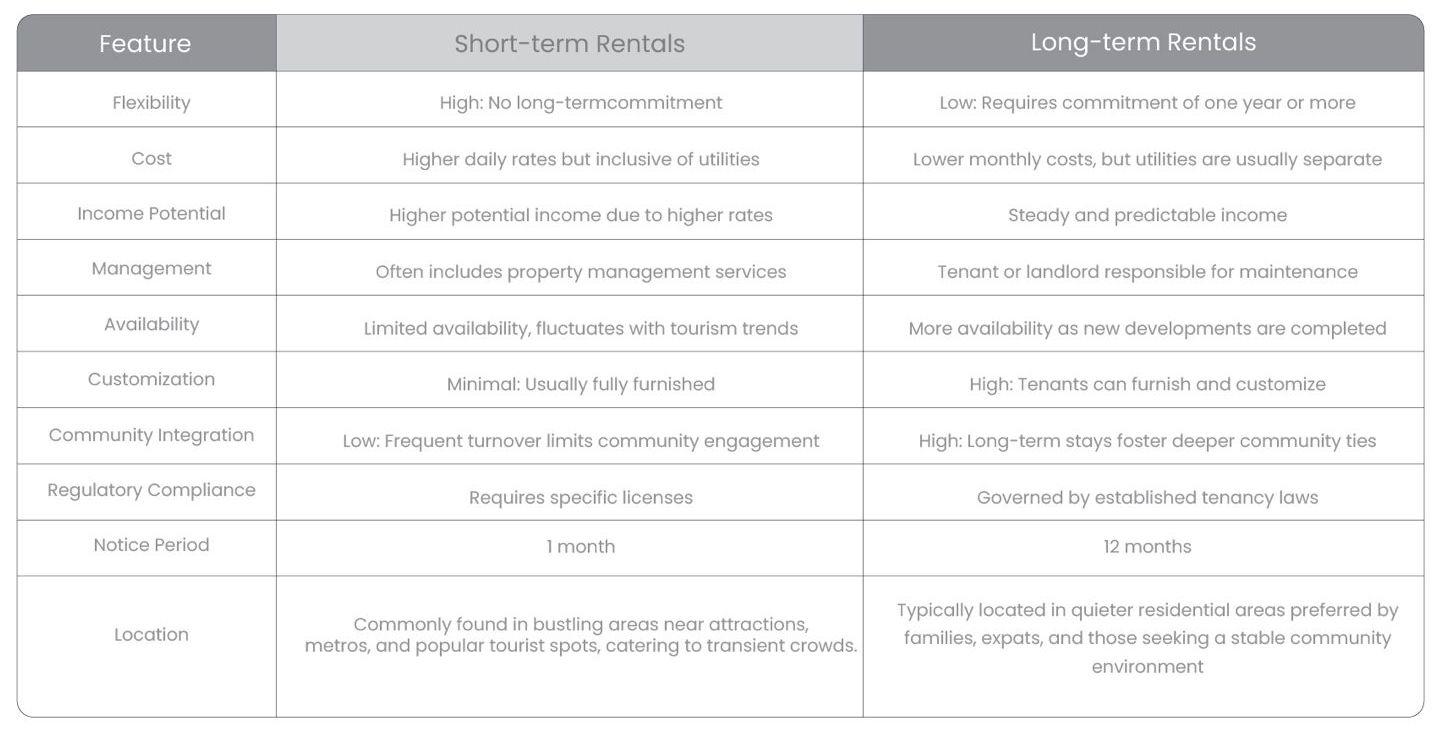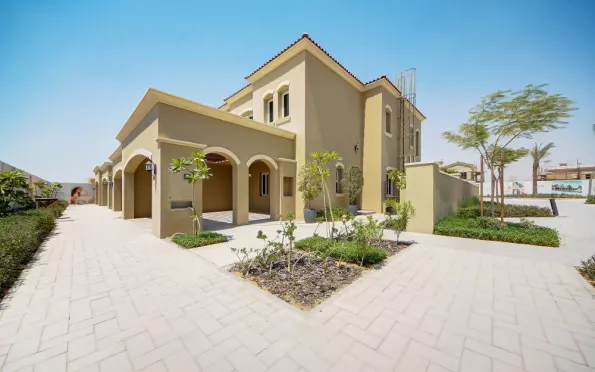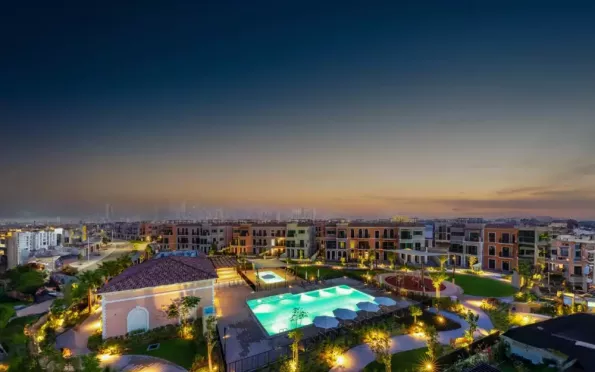Dubai Living: Navigating Short-term vs. Long-term Options
31 July 2024

Dubai's real estate market continues to attract global attention, with rental options playing a pivotal role in accommodating its diverse population. The emirate's rental market in 2024 continues to showcase resilience and growth, driven by diverse rental options catering to both short-term and long-term needs. According to recent reports by Khaleej Times, Dubai's real estate sector has seen robust performance, with average rents in key areas like Business Bay and Dubai Marina experiencing significant year-on-year increases of 21% and 20%, respectively. This surge highlights a robust market bolstered by strong economic fundamentals and an influx of high-net-worth individuals. Additionally, the short-term rental market is booming, with properties increasingly seen as lucrative secondary income sources. CBRE's report highlights significant trends in the Dubai real estate market, showing a notable increase in rental transactions in Q1 2024. Total registrations saw a 5.8% rise compared to the previous year, supported by ongoing developments in key areas like Meydan One and Jumeirah Village Circle, which contributed over 59% of new property supply during this period. Looking ahead, Dubai's rental market is poised for further expansion, with projections indicating up to a 10% increase in prime residential rental rates throughout 2024. This forecast underscores Dubai's attractiveness as a global real estate investment destination, offering both stability and growth potential in its rental sector.
Short-term Rentals: Flexibility and Convenience
Short-term rentals cater primarily to tourists, business travelers, and individuals seeking temporary accommodation. These rental agreements typically span from a few days to several months, offering flexibility that appeals to those with transient lifestyles. They are advantageous due to their potential for higher rental income compared to long-term leases. Additionally, they often include property management services, which can alleviate the burden of managing the property for the owner.
Long-term Rentals: Stability and Commitment
Long-term rentals are typically leases spanning one year or more, providing stability and consistency for residents settling in Dubai. This option appeals to expatriates and families looking to establish a home base in the city. Long-term rentals reflect steady demand and stable living arrangements.
Pros and Cons of Short-term and Long-term Rentals

Factors to Consider When Choosing Between Short-term and Long-term Rentals
Cost Efficiency
Short-term rentals may have higher costs but are inclusive of utilities, whereas long-term rentals offer better value over time.
Customisation and Stability
Long-term rentals allow for personal furnishing and customization, offering stability, while short-term rentals come fully furnished.
Management and Maintenance
Short-term options often include maintenance and cleaning services, while long-term leases may require tenants to handle some maintenance tasks.
Community Integration
Short-term rentals provide exposure to different areas, while long-term arrangements allow for deeper community engagement.
Market Trends and Availability
Short-term rental prices can be volatile during peak seasons, while long-term rates offer more stability but may face annual increases.
Regulatory Environment
The regulatory landscape may tighten for short-term rentals, whereas long-term rental laws could evolve to protect both landlords and tenants.
For more detailed insights or personalised recommendations, consult with us at [email protected].






